33 start with P start with P
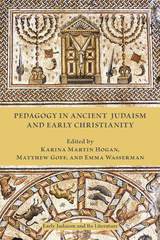
Engage fourteen essays from an international group of experts
There is little direct evidence for formal education in the Bible and in the texts of Second Temple Judaism and early Christianity. At the same time, pedagogy and character formation are important themes in many of these texts. This book explores the pedagogical purpose of wisdom literature, in which the concept of discipline (Hebrew musar) is closely tied to the acquisition of wisdom. It examines how and why the concept of musar came to be translated as paideia (education, enculturation) in the Greek translation of the Hebrew Bible (Septuagint), and how the concept of paideia was deployed by ancient Jewish authors writing in Greek. The different understandings of paideia in wisdom and apocalyptic writings of Second Temple Judaism are this book's primary focus. It also examines how early Christians adapted the concept of paideia, influenced by both the Septuagint and Greco-Roman understandings of this concept.
Features
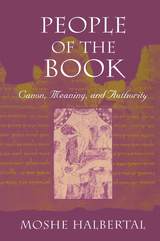
While Scripture is at the center of many religions, among them Islam and Christianity, this book inquires into the function, development, and implications of the centrality of text upon the Jewish community, and by extension on the larger question of canonization and the text-centered community. It is a commonplace to note how the landless and scattered Jewish communities have, from the time of the destruction of the Temple in Jerusalem in 70 A.D. until the founding of modern Israel in 1948, cleaved to the text and derived their identity from it. But the story is far more complex. The shift from the Bible to the Torah, from biblical religion to rabbinic Judaism mediated by the Sages, and the sealing of the canon together with its continuing interpretive work demanded from the community, amount to what could be called an unparalleled obsession with textuality. Halbertal gives us insights into the history of this obsession, in a philosophically sophisticated yet straightforward narrative.
People of the Book offers the best introduction available to Jewish hermeneutics, a book capable of conveying the importance of the tradition to a wide audience of both academic and general readers. Halbertal provides a panoramic survey of Jewish attitudes toward Scripture, provocatively organized around problems of normative and formative authority, with an emphasis on the changing status and functions of Mishnah, Talmud, and Kabbalah. With a gift for weaving complex issues of interpretation into his own plot, he animates ancient texts by assigning them roles in his own highly persuasive narrative.
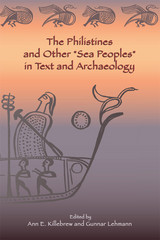
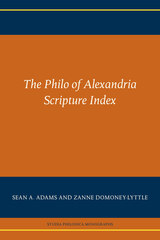
The Philo of Alexandria Scripture Index identifies and lists every instance in which Philo of Alexandria cites or alludes to passages from Jewish Scripture. With 7,831 references, this book is the most comprehensive study of its kind to date. Unlike other volumes with a single index of Philo’s citations and allusions organized by biblical book, this volume includes a second index that follows Philo’s treatise order. This second format allows students and scholars easily to examine Philo’s engagement with Scripture in individual treatises and to interrogate how Philo collected and grouped intertexts. In addition to the indices, Sean A. Adams and Zanne Domoney-Lyttle provide an introduction to their methodology and their selection of texts, including Philo’s fragmentary works and those that survive only in the Armenian tradition.
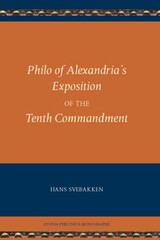

Syncretistic exegesis.
The philosopher Philo was born about 20 BC to a prominent Jewish family in Alexandria, the chief home of the Jewish Diaspora as well as the chief center of Hellenistic culture; he was trained in Greek as well as Jewish learning. In attempting to reconcile biblical teachings with Greek philosophy he developed ideas that had wide influence on Christian and Jewish religious thought.
The Loeb Classical Library edition of the works of Philo is in ten volumes and two supplements, distributed as follows. Volume I: Creation; Interpretation of Genesis II and III. II: On the Cherubim; The Sacrifices of Abel and Cain; The Worse Attacks the Better; The Posterity and Exile of Cain; On the Giants. III: The Unchangeableness of God; On Husbandry; Noah's Work as a Planter; On Drunkenness; On Sobriety. IV: The Confusion of Tongues; The Migration of Abraham; The Heir of Divine Things; On the Preliminary Studies. V: On Flight and Finding; Change of Names; On Dreams. VI: Abraham; Joseph; Moses. VII: The Decalogue; On Special Laws Books I–III. VIII: On Special Laws Book IV; On the Virtues; Rewards and Punishments. IX: Every Good Man Is Free; The Contemplative Life; The Eternity of the World; Against Flaccus; Apology for the Jews; On Providence. X: On the Embassy to Gaius; indexes. Supplement I: Questions on Genesis. II: Questions on Exodus; index to supplements.

Syncretistic exegesis.
The philosopher Philo was born about 20 BC to a prominent Jewish family in Alexandria, the chief home of the Jewish Diaspora as well as the chief center of Hellenistic culture; he was trained in Greek as well as Jewish learning. In attempting to reconcile biblical teachings with Greek philosophy he developed ideas that had wide influence on Christian and Jewish religious thought.
The Loeb Classical Library edition of the works of Philo is in ten volumes and two supplements, distributed as follows. Volume I: Creation; Interpretation of Genesis II and III. II: On the Cherubim; The Sacrifices of Abel and Cain; The Worse Attacks the Better; The Posterity and Exile of Cain; On the Giants. III: The Unchangeableness of God; On Husbandry; Noah's Work as a Planter; On Drunkenness; On Sobriety. IV: The Confusion of Tongues; The Migration of Abraham; The Heir of Divine Things; On the Preliminary Studies. V: On Flight and Finding; Change of Names; On Dreams. VI: Abraham; Joseph; Moses. VII: The Decalogue; On Special Laws Books I–III. VIII: On Special Laws Book IV; On the Virtues; Rewards and Punishments. IX: Every Good Man Is Free; The Contemplative Life; The Eternity of the World; Against Flaccus; Apology for the Jews; On Providence. X: On the Embassy to Gaius; indexes. Supplement I: Questions on Genesis. II: Questions on Exodus; index to supplements.

Syncretistic exegesis.
The philosopher Philo was born about 20 BC to a prominent Jewish family in Alexandria, the chief home of the Jewish Diaspora as well as the chief center of Hellenistic culture; he was trained in Greek as well as Jewish learning. In attempting to reconcile biblical teachings with Greek philosophy he developed ideas that had wide influence on Christian and Jewish religious thought.
The Loeb Classical Library edition of the works of Philo is in ten volumes and two supplements, distributed as follows. Volume I: Creation; Interpretation of Genesis II and III. II: On the Cherubim; The Sacrifices of Abel and Cain; The Worse Attacks the Better; The Posterity and Exile of Cain; On the Giants. III: The Unchangeableness of God; On Husbandry; Noah's Work as a Planter; On Drunkenness; On Sobriety. IV: The Confusion of Tongues; The Migration of Abraham; The Heir of Divine Things; On the Preliminary Studies. V: On Flight and Finding; Change of Names; On Dreams. VI: Abraham; Joseph; Moses. VII: The Decalogue; On Special Laws Books I–III. VIII: On Special Laws Book IV; On the Virtues; Rewards and Punishments. IX: Every Good Man Is Free; The Contemplative Life; The Eternity of the World; Against Flaccus; Apology for the Jews; On Providence. X: On the Embassy to Gaius; indexes. Supplement I: Questions on Genesis. II: Questions on Exodus; index to supplements.

Syncretistic exegesis.
The philosopher Philo was born about 20 BC to a prominent Jewish family in Alexandria, the chief home of the Jewish Diaspora as well as the chief center of Hellenistic culture; he was trained in Greek as well as Jewish learning. In attempting to reconcile biblical teachings with Greek philosophy he developed ideas that had wide influence on Christian and Jewish religious thought.
The Loeb Classical Library edition of the works of Philo is in ten volumes and two supplements, distributed as follows. Volume I: Creation; Interpretation of Genesis II and III. II: On the Cherubim; The Sacrifices of Abel and Cain; The Worse Attacks the Better; The Posterity and Exile of Cain; On the Giants. III: The Unchangeableness of God; On Husbandry; Noah's Work as a Planter; On Drunkenness; On Sobriety. IV: The Confusion of Tongues; The Migration of Abraham; The Heir of Divine Things; On the Preliminary Studies. V: On Flight and Finding; Change of Names; On Dreams. VI: Abraham; Joseph; Moses. VII: The Decalogue; On Special Laws Books I–III. VIII: On Special Laws Book IV; On the Virtues; Rewards and Punishments. IX: Every Good Man Is Free; The Contemplative Life; The Eternity of the World; Against Flaccus; Apology for the Jews; On Providence. X: On the Embassy to Gaius; indexes. Supplement I: Questions on Genesis. II: Questions on Exodus; index to supplements.

Syncretistic exegesis.
The philosopher Philo was born about 20 BC to a prominent Jewish family in Alexandria, the chief home of the Jewish Diaspora as well as the chief center of Hellenistic culture; he was trained in Greek as well as Jewish learning. In attempting to reconcile biblical teachings with Greek philosophy he developed ideas that had wide influence on Christian and Jewish religious thought.
The Loeb Classical Library edition of the works of Philo is in ten volumes and two supplements, distributed as follows. Volume I: Creation; Interpretation of Genesis II and III. II: On the Cherubim; The Sacrifices of Abel and Cain; The Worse Attacks the Better; The Posterity and Exile of Cain; On the Giants. III: The Unchangeableness of God; On Husbandry; Noah's Work as a Planter; On Drunkenness; On Sobriety. IV: The Confusion of Tongues; The Migration of Abraham; The Heir of Divine Things; On the Preliminary Studies. V: On Flight and Finding; Change of Names; On Dreams. VI: Abraham; Joseph; Moses. VII: The Decalogue; On Special Laws Books I–III. VIII: On Special Laws Book IV; On the Virtues; Rewards and Punishments. IX: Every Good Man Is Free; The Contemplative Life; The Eternity of the World; Against Flaccus; Apology for the Jews; On Providence. X: On the Embassy to Gaius; indexes. Supplement I: Questions on Genesis. II: Questions on Exodus; index to supplements.

Syncretistic exegesis.
The philosopher Philo was born about 20 BC to a prominent Jewish family in Alexandria, the chief home of the Jewish Diaspora as well as the chief center of Hellenistic culture; he was trained in Greek as well as Jewish learning. In attempting to reconcile biblical teachings with Greek philosophy he developed ideas that had wide influence on Christian and Jewish religious thought.
The Loeb Classical Library edition of the works of Philo is in ten volumes and two supplements, distributed as follows. Volume I: Creation; Interpretation of Genesis II and III. II: On the Cherubim; The Sacrifices of Abel and Cain; The Worse Attacks the Better; The Posterity and Exile of Cain; On the Giants. III: The Unchangeableness of God; On Husbandry; Noah's Work as a Planter; On Drunkenness; On Sobriety. IV: The Confusion of Tongues; The Migration of Abraham; The Heir of Divine Things; On the Preliminary Studies. V: On Flight and Finding; Change of Names; On Dreams. VI: Abraham; Joseph; Moses. VII: The Decalogue; On Special Laws Books I–III. VIII: On Special Laws Book IV; On the Virtues; Rewards and Punishments. IX: Every Good Man Is Free; The Contemplative Life; The Eternity of the World; Against Flaccus; Apology for the Jews; On Providence. X: On the Embassy to Gaius; indexes. Supplement I: Questions on Genesis. II: Questions on Exodus; index to supplements.

Syncretistic exegesis.
The philosopher Philo was born about 20 BC to a prominent Jewish family in Alexandria, the chief home of the Jewish Diaspora as well as the chief center of Hellenistic culture; he was trained in Greek as well as Jewish learning. In attempting to reconcile biblical teachings with Greek philosophy he developed ideas that had wide influence on Christian and Jewish religious thought.
The Loeb Classical Library edition of the works of Philo is in ten volumes and two supplements, distributed as follows. Volume I: Creation; Interpretation of Genesis II and III. II: On the Cherubim; The Sacrifices of Abel and Cain; The Worse Attacks the Better; The Posterity and Exile of Cain; On the Giants. III: The Unchangeableness of God; On Husbandry; Noah's Work as a Planter; On Drunkenness; On Sobriety. IV: The Confusion of Tongues; The Migration of Abraham; The Heir of Divine Things; On the Preliminary Studies. V: On Flight and Finding; Change of Names; On Dreams. VI: Abraham; Joseph; Moses. VII: The Decalogue; On Special Laws Books I–III. VIII: On Special Laws Book IV; On the Virtues; Rewards and Punishments. IX: Every Good Man Is Free; The Contemplative Life; The Eternity of the World; Against Flaccus; Apology for the Jews; On Providence. X: On the Embassy to Gaius; indexes. Supplement I: Questions on Genesis. II: Questions on Exodus; index to supplements.

Syncretistic exegesis.
The philosopher Philo was born about 20 BC to a prominent Jewish family in Alexandria, the chief home of the Jewish Diaspora as well as the chief center of Hellenistic culture; he was trained in Greek as well as Jewish learning. In attempting to reconcile biblical teachings with Greek philosophy he developed ideas that had wide influence on Christian and Jewish religious thought.
The Loeb Classical Library edition of the works of Philo is in ten volumes and two supplements, distributed as follows. Volume I: Creation; Interpretation of Genesis II and III. II: On the Cherubim; The Sacrifices of Abel and Cain; The Worse Attacks the Better; The Posterity and Exile of Cain; On the Giants. III: The Unchangeableness of God; On Husbandry; Noah's Work as a Planter; On Drunkenness; On Sobriety. IV: The Confusion of Tongues; The Migration of Abraham; The Heir of Divine Things; On the Preliminary Studies. V: On Flight and Finding; Change of Names; On Dreams. VI: Abraham; Joseph; Moses. VII: The Decalogue; On Special Laws Books I–III. VIII: On Special Laws Book IV; On the Virtues; Rewards and Punishments. IX: Every Good Man Is Free; The Contemplative Life; The Eternity of the World; Against Flaccus; Apology for the Jews; On Providence. X: On the Embassy to Gaius; indexes. Supplement I: Questions on Genesis. II: Questions on Exodus; index to supplements.

Syncretistic exegesis.
The philosopher Philo was born about 20 BC to a prominent Jewish family in Alexandria, the chief home of the Jewish Diaspora as well as the chief center of Hellenistic culture; he was trained in Greek as well as Jewish learning. In attempting to reconcile biblical teachings with Greek philosophy he developed ideas that had wide influence on Christian and Jewish religious thought.
The Loeb Classical Library edition of the works of Philo is in ten volumes and two supplements, distributed as follows. Volume I: Creation; Interpretation of Genesis II and III. II: On the Cherubim; The Sacrifices of Abel and Cain; The Worse Attacks the Better; The Posterity and Exile of Cain; On the Giants. III: The Unchangeableness of God; On Husbandry; Noah's Work as a Planter; On Drunkenness; On Sobriety. IV: The Confusion of Tongues; The Migration of Abraham; The Heir of Divine Things; On the Preliminary Studies. V: On Flight and Finding; Change of Names; On Dreams. VI: Abraham; Joseph; Moses. VII: The Decalogue; On Special Laws Books I–III. VIII: On Special Laws Book IV; On the Virtues; Rewards and Punishments. IX: Every Good Man Is Free; The Contemplative Life; The Eternity of the World; Against Flaccus; Apology for the Jews; On Providence. X: On the Embassy to Gaius; indexes. Supplement I: Questions on Genesis. II: Questions on Exodus; index to supplements.
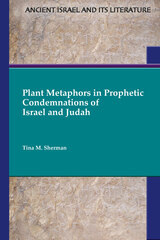
Tina M. Sherman offers a first-of-its-kind, detailed analysis of prophetic passages that depict people as plants—from grasses and grains to fruit trees and grapevines—examining how the biblical authors exploited these metaphors to portray the condemnation and punishment of Israel and Judah in terms of the everyday work of crop farming and plant husbandry. Additionally, she explores how the prophetic authors employed plant imagery to construct national identities that emphasize the people’s collective responsibility for the kingdoms’ fate. Plant Metaphors in Prophetic Condemnations of Israel and Judah demonstrates the usefulness of combining conceptual metaphor theory with aspects of frame semantics in the analysis of patterns of thought and expression in biblical metaphor.
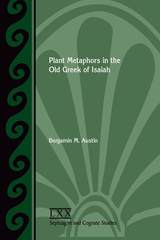
A thorough analysis of metaphor translation techniques used in Isaiah
In this study Benjamin M. Austin analyzes all the plant metaphors in Isaiah and classifies them according to the metaphor translation techniques used by the Septuagint translator. Austin illustrates how the translator took the context of each metaphor into account and demonstrates how the natural features of the plants under discussion at times influenced their translation. He argues that the translator tried to render metaphors vividly and with clarity, sometimes adjusting them to match the experience of his audience living in Egypt. Austin also examines metaphors in terms of their vehicles (the objects of comparison), so that the translation of similar metaphors can be compared.
Features
- A comparison of the Masoretic Text to the Septuagint and Targum
- A classification of metaphor translation strategies
- An introduction to the Hellenistic and the Jewish conception of metaphors
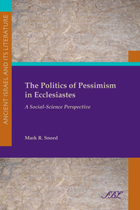
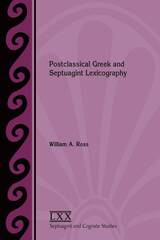
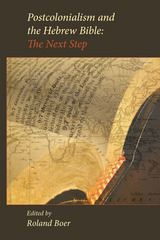
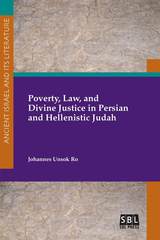
A view of Persian and Hellenistic Judean communities through theological and socioeconomic lenses
Johannes Unsok Ro employs philological, historical, and sociological approaches to investigate the close connections between socioeconomic structures, social inequality, and theological developments in the Judean communities in Persian- and Hellenistic-era Palestine. Ro contends that competing points of view from communities of lay returnees, priestly returnees, and communities of resident Judeans and Samaritans were juxtaposed within the Hebrew Bible, which took shape during the postexilic period. By exploring issues such as the relationship between the shaping of the canon and literacy in the Judean community, the term strangers in the biblical law codes, the socioeconomic structures of Judean communities reflected in the biblical law codes, the development of the theological concept of divine punitive justice, the piety of the poor in certain psalms, and the concept of poverty in the Dead Sea Scrolls, Ro illustrates that the communities behind each text and its redactions can be ascertained through sociological and theological lenses.
Features
- Demonstration that a theology of the poor materialized orally among the poor but found written expression among Levites
- Insight into the socioeconomic and theological concerns of the authorial groups behind various biblical law codes
- A case that biblical “poverty” sometimes refers to humility and a theologically reflected consciousness of lowliness toward God

This volume of the Building Bridges Seminar, Power: Divine and Human, Christian and Muslim Perspectives, comprises pairs of essays by Christians and Muslims which introduce texts for dialogical study, plus the actual text-excerpts themselves.
This new book goes far beyond mere reporting on a dialogical seminar; rather, it provides guidance and materials for constructing a similar dialogical experience on a particular topic. As a resource for comparative theology, Power: Divine and Human is unique in that it takes up a topic not usually explored in depth in Christian-Muslim conversations. It is written by scholars for scholars. However, in tone and structure, it is suitable for the non-specialist as well. Students (undergraduate and graduate), religious leaders, and motivated non-specialists will find it readable and useful. While it falls solidly in the domain of comparative theology, it can also be used in courses on dialogical reading of scripture, interreligious relations, and political philosophy.
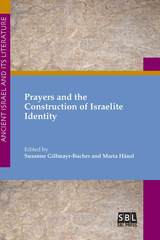
Substantial insights into various identity discourses reflected in the biblical prayers
This collection of essays from an international group of scholars focuses on how biblical prayers of the Persian and early Hellenistic periods shaped identity, evoked a sense of belonging to specific groups, and added emotional significance to this affiliation. Contributors draw examples from different biblical texts, including Genesis, Samuel, Kings, Chronicles, Ezra and Nehemiah, Psalms, Jonah, and Daniel.
Features
- Thorough study of prayers that play a key role for a biblical book’s (re)construction of the people’s history and identity
- An examination of ways biblical figures are remodeled by their prayers by introducing other, sometimes even contradictory, discourses on identity
- An exploration of different ways in which psalms from postexilic times shaped, reflected, and modified identity discourses

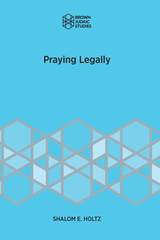
Explore the lengthy history of legal metaphors in ancient prayer
In biblical and other ancient Near Eastern sources, prayer is an opportunity to make one’s case before divine judges. Prayers were formulated using courtroom or trial language, including demands for judgment, confessions, and accusations. The presence of these legal concepts reveals ancient Near Eastern thoughts about what takes place when one prays. Holtz highlights legal concepts that appear in prayers, including the motif of the speakers' oppression in Psalms the possibility of countersuit against God through prayer, and divine attention and inattention as legal responses. By reading ancient prayers together with legal texts, this book shows how speakers took advantage of prayer as an opportunity to have their day in the divine court and even sue against divine injustice.
Features
- Identification of legal vocabulary and concepts that appear in ancient prayers
- Analysis of legal metaphors in prayer examples in Akkadian and postbiblical rabbinic texts
- Interpretations of trial records and texts from Psalms and Lamentations
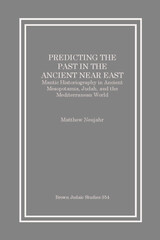

Using a unique combination of biblical scholarship and folklore methodology, Susan Niditch tracks stories of biblical characters who become heroes against the odds, either through trickery or through native wisdom, physical prowess, and the help of human or divine agents. In this volume, originally published as Underdogs and Tricksters, Niditch examines three cross-sections of the Old Testament in detail: stories in Genesis in which patriarchs pretend that their wives are really their sisters; the contrasting stories of two younger sons, the trickster Jacob and the earnest underdog Joseph; and the story of Esther as a paradigm of feminine wisdom pitted against unjust authority.
Linking these Old Testament heroes to the legendary tricksters and underdogs of other cultures, Niditch shows how the Israelites' worldview and self-image are reflected in the way biblical authors tell their stories. Through a thoughtful analysis of style, content, narrative choices, and attitudes to issues of gender and political authority in biblical narrative, A Prelude to Biblical Folklore draws persuasive conclusions about the identity, location, and provenance of the stories' authors and their audiences.
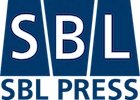
Key essays that explore a range of attitudes toward clergy and ritual
This book discusses the depictions of the cult and its personnel in the twelve prophetic books commonly referred to as the Book of the Twelve or the Minor Prophets. The articles in the volume explore the following questions: How did these prophetic writers envision the priests and the Levites? What did they think about the ritual aspects of ancient Israelite faith, including not only the official temple cult in Jerusalem but also cultic expressions outside the capital? What, in their views, characterized a faithful priest and what should the relationship be between his cultic performance and the ways in which he lived his life? How does the message of each individual author fit in with the wider Israelite traditions? Finally, who were these prophetic authors, in which historical contexts did they live and work, and what stylistic tools did they use to communicate their message?
Features:
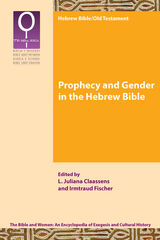
Multifaceted insights into female life in prophetic contexts
Both prophets and prophetesses shared God’s divine will with the people of Israel, yet the voices of these women were often forgotten due to later prohibitions against women teaching in public. This latest volume of the Bible and Women series focuses on the intersection of gender and prophecy in the Former Prophets (Joshua to 2 Kings) as well as in the Latter Prophets of the Hebrew Bible. Essays examine how women appear in the iconography of the ancient world, the historical background of the phenomenon of prophecy, political and religious resistance by women in the biblical text, and gender symbolism and constructions in prophetic material as well as the metaphorical discourse of God. Contributors Michaela Bauks, Athalya Brenner-Idan, Ora Brison, L. Juliana Claassens, Marta García Fernández, Irmtraud Fischer, Maria Häusl, Rainer Kessler, Nancy C. Lee, Hanne Løland Levinson, Christl M. Maier, Ilse Müllner, Martti Nissinen, Ombretta Pettigiani, Ruth Poser, Benedetta Rossi, Silvia Schroer, and Omer Sergi draw insight into the texts from a range of innovative gender-oriented approaches.
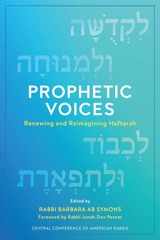
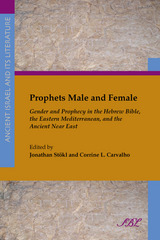
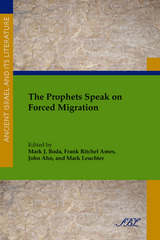
A valuable resource with productive avenues for inquiry
In this collection of essays dealing with the prophetic material in the Hebrew Bible, scholars explore the motifs, effects, and role of forced migration on prophetic literature. Contributors focus on the study of geographical displacement, social identity ethics, trauma studies, theological diversification, hermeneutical strategies in relation to the memory, and the effects of various exilic conditions in order to open new avenues of study into the history of Israelite religion and early Judaism.
Features:
- An introductory essay that presents a history of scholarship and an overview of the collection
- Ten essays examining the rhetoric of exile in the prophets
- Current, thorough approaches to the issues and problems related to historical and cultural features of exile in biblical literature
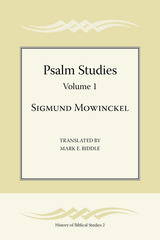
Sigmund Mowinckel is widely recognized as one of the leading forces in Psalms research during the twentieth century. Indeed, the culmination of Mowinckel’s thought and work, The Psalms in Israel’s Worship, continues to play a significant role in Psalms scholarship today. Not as well known are the seminal studies that prepared the ground for Mowinckel’s later work, the six Psalmenstudien that are translated here into English for the first time. In these studies Mowinckel explores with care and in detail such topics as: “'Awen and the Psalms of Individual Lament”; “YHWH’s Enthronement Festival and the Origin of Eschatology”; “Cultic Prophecy and Prophetic Psalms”; “The Technical Terms in the Psalm Superscriptions”; “Blessing and Curse in Israel’s Cult and Psalmody”; and “The Psalmists.” Anyone interested in Psalms study, especially the possible role of the New Year’s enthronement festival within Israel’s cult and its relation to the Psalter, will find much to consider in these classic works.

Sigmund Mowinckel is widely recognized as one of the leading forces in Psalms research during the twentieth century. Indeed, the culmination of Mowinckel’s thought and work, The Psalms in Israel’s Worship, continues to play a significant role in Psalms scholarship today. Not as well known are the seminal studies that prepared the ground for Mowinckel’s later work, the six Psalmenstudien that are translated here into English for the first time. In these studies Mowinckel explores with care and in detail such topics as: “'Awen and the Psalms of Individual Lament”; “YHWH’s Enthronement Festival and the Origin of Eschatology”; “Cultic Prophecy and Prophetic Psalms”; “The Technical Terms in the Psalm Superscriptions”; “Blessing and Curse in Israel’s Cult and Psalmody”; and “The Psalmists.” Anyone interested in Psalms study, especially the possible role of the New Year’s enthronement festival within Israel’s cult and its relation to the Psalter, will find much to consider in these classic works.
READERS
Browse our collection.
PUBLISHERS
See BiblioVault's publisher services.
STUDENT SERVICES
Files for college accessibility offices.
UChicago Accessibility Resources
home | accessibility | search | about | contact us
BiblioVault ® 2001 - 2024
The University of Chicago Press









